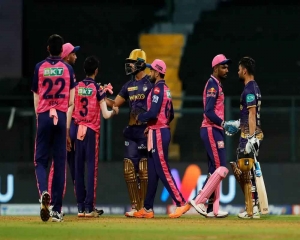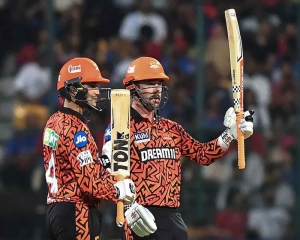Access to safe blood has been a persistent problem in India. The rate of blood donation in the country amounts to only 1 per cent of the population, and the pandemic only compounded the issue.
India currently is facing a huge shortage of blood due to strict social distancing norms, cancellation of various blood drives and low donor turnout due to the Covid-19 crisis.
The people who need blood on a regular basis, have suffered much during the first wave of Covid-19, when blood donation did not happen as people feared to donate blood. The situation has aggravated further during second wave.
While the rate of blood donation declined drastically, the requirement for blood remained constant. The medical fraternity is struggling to provide healthcare services to a large number of Covid-19 patients, day by day. Vaccination has been initiated all over India and as per the recent order by the National Blood Transfusion Council (NBTC) an individual cannot give blood for 28 days following the last dose of the Covid-19 vaccine. As beneficiaries are receiving two jabs, hence the number of days is 56.
Since the start of the vaccination campaign has begun across Odisha, the blood donor programme in Odisha is likely to be severely affected in the coming months. Therefore, the healthcare organisations are urging people to donate blood and are trying to collect maximum units of blood.
Shortage of blood in the past few months is said to be detrimental to those who are in urgent need of blood and blood components, like thalassemia and severe anaemia patients, accident victims, persons suffering antepartum and postpartum haemorrhage, and those needing urgent surgeries.Blood transfusion is a significant aspect to these patients’ health. Inadequately screened blood and unsafe blood transfusion process may lead to transfusion transmissible infections (TTIs) like HIV, Hepatitis B and C etc, further risking the life of the patients. Keeping the safety of its people, the Government of Odisha launched ‘NAT PCR Solution’ under Public Private Partnership with Roche Diagnostics. Roche NAT PCR solution enables screening of donated blood, to reduce the risk of TTIs in people receiving blood.
The NAT PCR is an advanced technique for screening blood donations to reduce the risk of transfusion transmitted infections (TTIs) in the recipients, thus providing an additional layer of blood safety. At present NAT PCR facility is available at MKCG Medical College, Brahmapur, Capital Hospital Bhubaneswar, SCB Medical College, Cuttack, VIMSAR Burla and in two other hospitals.
While Odisha has already taken the steps to make blood safer, now it is the people’s turn to come forward and donate blood for thalassemia patients and for others in need. The situation is severe and there is a need to show kindness by donating blood before going for vaccination.

























